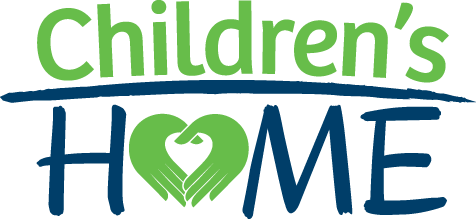Why Foster Care?
Almost half a million children were in foster care in September 2016, according to information from the Adoption and Foster Care Analysis and Reporting System (AFCARS). Of those, nearly half were in non-relative homes. The need for foster homes continues to grow, with some areas experiencing an increase in children coming into care.
Those who view foster care from the outside may wonder why it is so important. Perhaps some have even thought about becoming Resource Parents but have not taken the next step. It may be helpful to understand why there is such a need for this service.
Safety and Stability
The primary purpose of foster care is to provide a safe and stable environment for a child who cannot be with his or her parents for some reason. An environment that feels like home instead of a group home or other residential center is usually best for a child.
Children who have been uprooted from their homes need a place where they can feel safe. Many times, they have suffered abuse and/or neglect from their parents, so they have no idea what a loving home feels like. Resource Parents help them learn what it is like to eat, sleep, and play in a place that is safe.
Often, the place they previously called home was chaotic with no routines or a sense of normalcy. These children must learn what it’s like to get up and go to school, eat regular meals, and have schedules. Knowing what is going to happen every day gives the child a sense of stability that is often lacking.
Education
Much of the time, biological parents love their children, but problems they are dealing with prevent them from knowing how to be a parent. Whether it’s drugs, alcohol, or other issues, they cannot provide what a child needs. As a result, the child doesn’t know what a “normal” life looks like.
Resources Families teach children what it means to be a kid. They learn to laugh and love and to act their age. It often takes time and patience for children to relax enough to be themselves or even to figure out who they are. Resource Parents have the big task of helping children learn about themselves and the world around them in a positive way after experiencing so much negativity in their lives.
Stopping the Cycle
Resource Parents have the vital role of teaching children what a family looks like. Through foster care, they get the individual attention and guidance they need to help them grow and develop according to their age. They see what being a parent is supposed to mean so that when they grow up, they don’t have to continue to the cycle.
Often, foster care provides a safe transition period for the child while the biological family gets their issues resolved so they can be the parents they want to be. The Resource Parents not only support the child, but they support the parents, too. They help the parents fulfill their roles and feel less alone in their struggles. The biological parents can know their child is safe and being cared for while they focus on getting their lives on track.
Foster care plays a significant role in caring for kids in an already-burdened system. It is an essential component of bringing families together and helping kids to grow up and excel in life regardless of their past.
Interested in becoming a Resource Parent?
Sessions are held every second Tuesday of the month, 6 - 7 PM, via telephone conference. Email Hannah Trimmer to RSVP.
Foster Care with Children's Home of York
Our Permanency Program provides a variety of services for children and their biological, foster and/or adoptive families from birth through the age of 21. Our structured, therapeutic family environment offers intensive support with the goal of helping children in our care secure a permanent family as quickly as possible. We work with a pool of Resource Parents to provide kinship care and a variety of Permanency support services throughout Pennsylvania. We maintain an ongoing process of recruitment, screening, and training — which enables us to offer diverse geographical and racial/ethnic environments essential to the successful placement of children and sibling groups of all ages who have a variety of emotional and psychological needs.
We serve children who are able to function in a family setting with support and structure. (This includes children with family conflicts, truancy, defiant and runaway behaviors; victims of physical and/or sexual abuse; minor delinquency, those with educable and trainable disabilities and children who have emotional disturbances.) Mother and child placements are also available.
What makes us special is our unique approach to the process from first thought to welcoming a child into your home. We understand the process can be confusing and overwhelming for anyone, so we pride ourselves in providing step-by-step guidance and support. We take a realistic approach to answering all your questions and concerns. We believe the only way to make the right decision for you and your family is to make an informed decision.
Training and Support
Individuals and families can be approved in as little as six to eight weeks to become Resource Parents. The process moves quickly, pending the completion of all safety and background requirements. We are committed to aiding and supporting every step of the way.
Our comprehensive pre-service training prepares applicants to become successful and effective Resource Parents. Once approved you will participate in monthly training sessions that delve into the complexities of foster care. One of our unique approaches to this educational process is by introducing the "Think Trauma" curriculum that explores the many ways children are affected by their situations and how we can best respond to it. Ongoing support, education, and communication, bi-weekly in-home visits, help to arrange respite care, special assistance in cases of emergency, and social networking opportunities are among the many services foster parents can expect to receive from the Permanency Program.
In addition, foster parents receive TAX-FREE financial support to help meet the needs of the children placed in their home. A daily rate is provided. Transportation expenses are reimbursed, and foster children have their own medical coverage as well as funds for allowance and clothing expenses.

